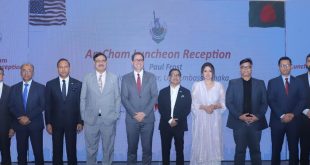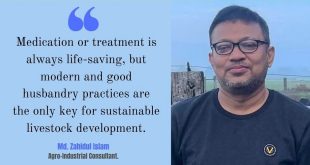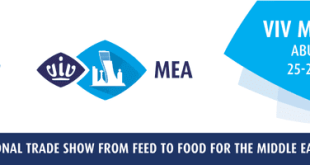Dear colleagues and friends,
Despite the growth of aquaculture, small-scale capture fisheries will continue to supply most of the fish consumed in much of the developing world in the coming decades. With partners, we work to generate critical knowledge to ensure sustainable fisheries and healthy oceans under the threat of climate change.
During this week leading up to World Fisheries Day, we have been informing with our research work and evidence important policy discussions taking place at the FAO International Symposium on Fisheries Sustainability in Rome, which we co-sponsor with our strategic partner FAO.
- Several innovations developed by WorldFish and partners of the CGIAR Research Program on Fish Agri-Food Systems (FISH) give an idea of how science can help unlock the potential of aquatic foods in different production systems and different parts of the world.
- FAO, WorldFish, FISH, and Duke University are working in partnership with experts around the world on Illuminating Hidden Harvests, a collaborative study that provides a snapshot of the contributions, impacts and drivers of change of small-scale fisheries globally. To date, 54 country case studies have been or are in the process of being contracted, representing 69 percent of the total marine catch and 81 percent of the global inland fish catch.
- A recent paper published in Nature, on Harnessing global fisheries to tackle micronutrient deficiencies, reveals that there is more than enough nutritious fish to go around, but those in coastal populations in the developing world – who need it the most – are missing out. Check out the press release and video abstract.
The daunting challenge of feeding global population expected to reach more than 9 billion by 2050 is engaging researchers, technical experts, and leaders the world over. An often overlooked, yet promising, fact is that fish can play a major role in satisfying the palates of the world’s growing middle income group while also meeting the food security needs of the poorest.
- Our foresight studies for Asia and Africa, produced together with the International Food Policy Research Institute (IFPRI), show how sustainable development, fisheries and aquaculture can help meet the increase in demand for fish and aquatic foods in the coming years.
- In this interview with Norwegian Minister of Fisheries and Seafood, Harald T Nesvik, we find out more about how the country views the importance of fish and other aquatic foods for achieving global goals on nutrition and poverty alleviation and the critical role of science in shaping the path towards sustainable fisheries and aquaculture.
- A new report we helped produce with the World Resources Institute highlights the importance of aquatic foods from wild fisheries and aquaculture for achieving sustainable food systems by 2050 – especially given the limits to agricultural expansion and the need to produce food nutritious food with a lower greenhouse gas footprint.
At the Our Ocean 2019 conference in Norway last month a number of governments, private companies, NGOs and research organisations committed USD 64 billion – yes, billion – to support clean, healthy and productive oceans.
I’m pleased to say that WorldFish was among them. With our 2017 commitment amounting to USD 57 million over six years through the CGIAR Research Program on FISH, we pledged an additional USD 1 million this year. This is to support development of a new global research program on fish and aquatic foods, and to mobilize a global public-private partnership for the establishment of a Fish For Africa Innovation Hub. The hub aims to transform Africa’s aquaculture sector and fish value chains through an enabling science, market and policy environment that will create new jobs and opportunities and ensure the sustainable supply of affordable, safe and nutritious fish and aquatic foods across the continent.
Let’s remember that from seaweeds and sea cucumbers to crustaceans to fish, the global trade in aquatic foods supports hundreds of millions of jobs. The sector also provides around one-fifth of the world’s animal protein and a range of micronutrients such as vitamin A, iron, zinc and omega-3 fatty acids that are particularly important for maternal health and child development, but which are often lacking in the diets of the poor.
We’ll continue to share our research and insights with policymakers at the national, regional and global levels, to ensure safe, affordable, nutritious fish and other aquatic foods play a key role in the global transition to more sustainable food systems that feed billions and nourish nations.
Best wishes,
Gareth Johnstone
Director General
WorldFish
 Agrinews24 কৃষির সাথে, কৃষকের পাশে
Agrinews24 কৃষির সাথে, কৃষকের পাশে




















